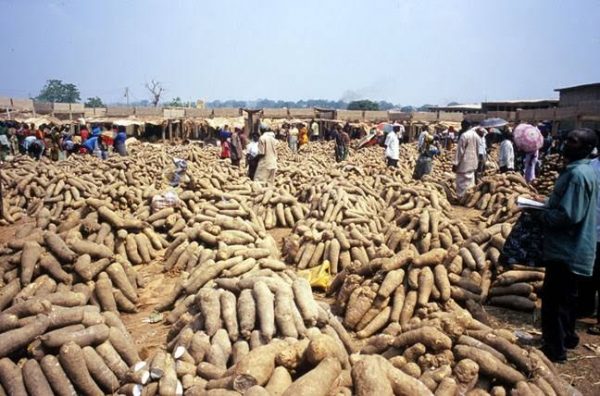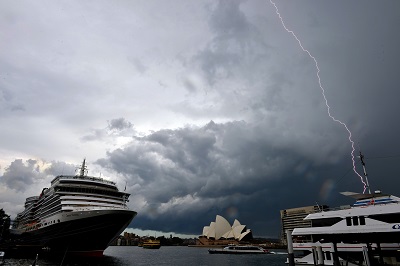How To Combat Smuggling

Uche Ejisieme is the Public Relations Officer of the Federal Operations Unit (FOU), Zone ‘A’ Ikeja; in this interview, he explains the detrimental effects of contraband products on the economy, how it will kill local manufacturing firms and the equipment deployed by the service to rid the society of the killer products. He did not forget to define what smuggling actually means. Enjoy the reading as Uche educates you.
What is smuggling?
Smuggling like the concept denotes, several scholars have actually attempted to define smuggling. As we speak, there is no internationally accepted definition of smuggling. But simply, simply put smuggling means the criminal offence of intentionally and secretively bringing an item into the country without declaring to custom officials and paying the associated taxes due for it.
Another definition that might interest you is that smuggling is illegal transport that comes to play on National boundaries on goods or persons liable to customs prohibition. Then, you can also define smuggling as bringing goods into the country illegally that is the most elementary definition of smuggling.
Bringing goods into the country illegally in contravention of the extant laws of the nation and for us as a people, our major concern is to make sure that we suppress smuggling because smuggling like I said earlier is a global phenomenon. Just last week I was reading an online story where drug smugglers in Mexico make use of underground tunnel to smuggle drugs. But the good news is that Nigeria customs is equal to the task why? Because we have the comptroller General of customs who is equal to the task, who has actually provided the service with functional equipment, he has brought some daemon into the service; he has vehicles, arms and ammunitions.
Motivation of officers has always been a regular exercise and remuneration including provision of accommodation and everything that gingers up the officers to continue to do more. Just last week, we took delivery of 20 brand new Hilux vehicles to enhance our operations. We can’t stop talking about smuggling but the truth remains that customs will continue to play their part. We will continue to call for collaboration and synergy between Nigeria and among Nigerians to help us fight this fight. The issue of smuggling cannot be left to customs alone. It should be a joint collaboration and in this case we expect genuine information on anything that has to do with smuggling and the beauty of the whole thing is that in customs, they identity of our informants are always kept with utmost confidentially which means that we must protect your identity to make sure that you don’t have any issues. So we will continue to ask for your help, the media too, they also have a role to play because the last seizure we made in one of the creeks, I don’t want to mention or name the name of the place so that I don’t denigrate the exact location.
So you can imagine smuggling at that level. That is where the media comes in, to continue to sensitize, go to the grass root, to talk to the people in a language they will understand. Through jingles or whatever, that is the only way you can support the federal government in the fight against smuggling. And if you see anybody engaging in smuggling activities, you have the obligation to notify the custom service and we will take prompt action.
So, our major job there is supervision of smuggling and we did it from January to December last year; we recorded almost 2 million as duty paid value of all the seizures we made in 2014. In all of these seizures, the record we made is quite unprecedented because since the inception of this unit we have not recorded such huge seizures. We have massive seizures of rice even early this year, when we went to Seme area in Ogun state and some other areas. Goods we believe came from unapproved routes; don’t forget that most of these areas are volatile too and we have been contending with the volatility of these areas but it cannot stop us from actually doing our job, we have been moving to the nooks and crannies of areas under our jurisdiction, under our coverage.
The flash points and areas we believe are notorious for smuggling. What we try to do is to block their supply agents, cut off their supply chain to ensure that these things don’t come through there again. Our officers are scattered all over the place knowing full well that smugglers have gone hitech and everything.
What informs goods being placed under contraband?
This actually is dependent on Federal Government fiscal policy. Before they place anything as a prohibited item, it simply means that the Federal government with regards to fiscal policy of governance, those goods that they feel should not be allowed to enter for various reasons (1) I will give you example with the issue of fruit juice.
Recall that those days the customs have the challenge of ensuring that you don’t allow them simply because there is a need for us to protect the local industry. The reasons are very clear. Basically the reason is to ensure that local industries are protected.
For instance, if you look at Chivita, you know the number of people that are working in that industry and you can imagine that are working in that industry and you can imagine the consequence if foreign fruit juice is allowed to come and over flood the market.
So, basically, the core function of customs is to ensure suppression of smuggling and most importantly to collect revenue and account for them and beyond all of these, we are involved in trade facilitation to make sure that people comply with their importers and their agents to have a seam legs transaction both in the port and elsewhere.
I am sure you know that smuggling just like scavenging is a global phenomenon even in the most developed economies of the world, you still find people smuggling. Just recently, a patrol of British customs intercepted two trucks. One was loaded in a concealed with 1200 cartons of poultry products with 800 bags of cement. Then the other one used old furniture to conceal poultry products. What I am trying to say is that the more a country gets developed, the more sophisticated and the more ingenious their smuggling activities appear to be. Smuggling is not peculiar to Nigeria, it is not peculiar to Africa, it is a universal phenomenom.
What is important to us is that, it is reduced drastically the rate of smuggling, this is what we actually do and one of our main statutory function if you look at items under prohibition list, there are very many of them, like second hand clothing, it is under prohibition, vegetable oil in packages oil, detergents and soaps, used tyres, used compressors.
Is it possible that there are some of these goods that are contraband that we don’t produced locally and we still put them as contraband?
Like I said we are not determine or to talk on goods that are placed on contraband or not, ours is to implement action of government policy. Don’t forget that the Minister of finance under the presidency is saddled with this responsibility. And we know that we have egg heads in the Ministry, people who sit down to deliberate on the policy. So, if government says we should implement anything, we implement. Ours is to implement government policy that is our statutory function. It is not for us to know why this and that are placed on the list.
What are the effects of contraband products on the economy?
For instance when we are talking about frozen poultry product, I am not a health expert but it is very clear from some of the books we read and the seminars we have attended that the chemicals used in preserving the frozen poultry products are very injurious to health. These vessels that bring most of these products most of the times don’t come straight here. Sometimes it takes them up top 6 – 9 months before it can branch to one of these neighboring ports. They are actually very injurious to health.
Apart from the Hilux you talked about, what other equipment do you have in combating smuggling?
We have sophisticated equipment and don’t forget that we just took delivery of an Armored Personnel Carrier (APC). Apart from that, we have our walkie talkie and beyond that also, we have our bullet-proof vests, we are fully equipped, I wish you could see an officer when he is fully dressed and ready to go for operation from their crash helmet to the bullet-proof vests, to the jungle boots, even the new camouflage uniform that was recently launched, so we have what it takes to actually fight smuggling.
How do you know the areas to focus on when you are ready to operate?
Areas that record most seizures particularly are some of these apian ways. Don’t forget that there are many unapproved routes and our satellites are always focused there because no smuggler will pass normal route. So, we mount our aggressive patrol on the unapproved routes. I would have taken you to the warehouse, you will see that everywhere is filled to the brim; thanks to the marvelous work of this present regime in the person of controller Turaki Usman Adamu. He claims he has to change his operational modality, he has to revamp the whole process and now, you have seen that team leaders are being put on their toes because there is zero tolerance for non-performance. If you don’t perform, you will be reprimanded. So, we are working assiduously well to make sure that we achieve this common goal against smuggling.
What does the service do with the seized items?
For instance, if you seize frozen poultry products, you know it is perishable and what we normally do is destroy them. What we normally do is to invite the relevant government agencies like NAFDAC and sometimes NESREA and even the police to come and witness the destruction but the other ones that are not perishable, we will compile them and after one month, they are condemned in a Law Court by a High Court Judge and after that, they can be given out to the appropriate authorities by auction but they have to be condemned first by a Judge in the Federal High Court.







